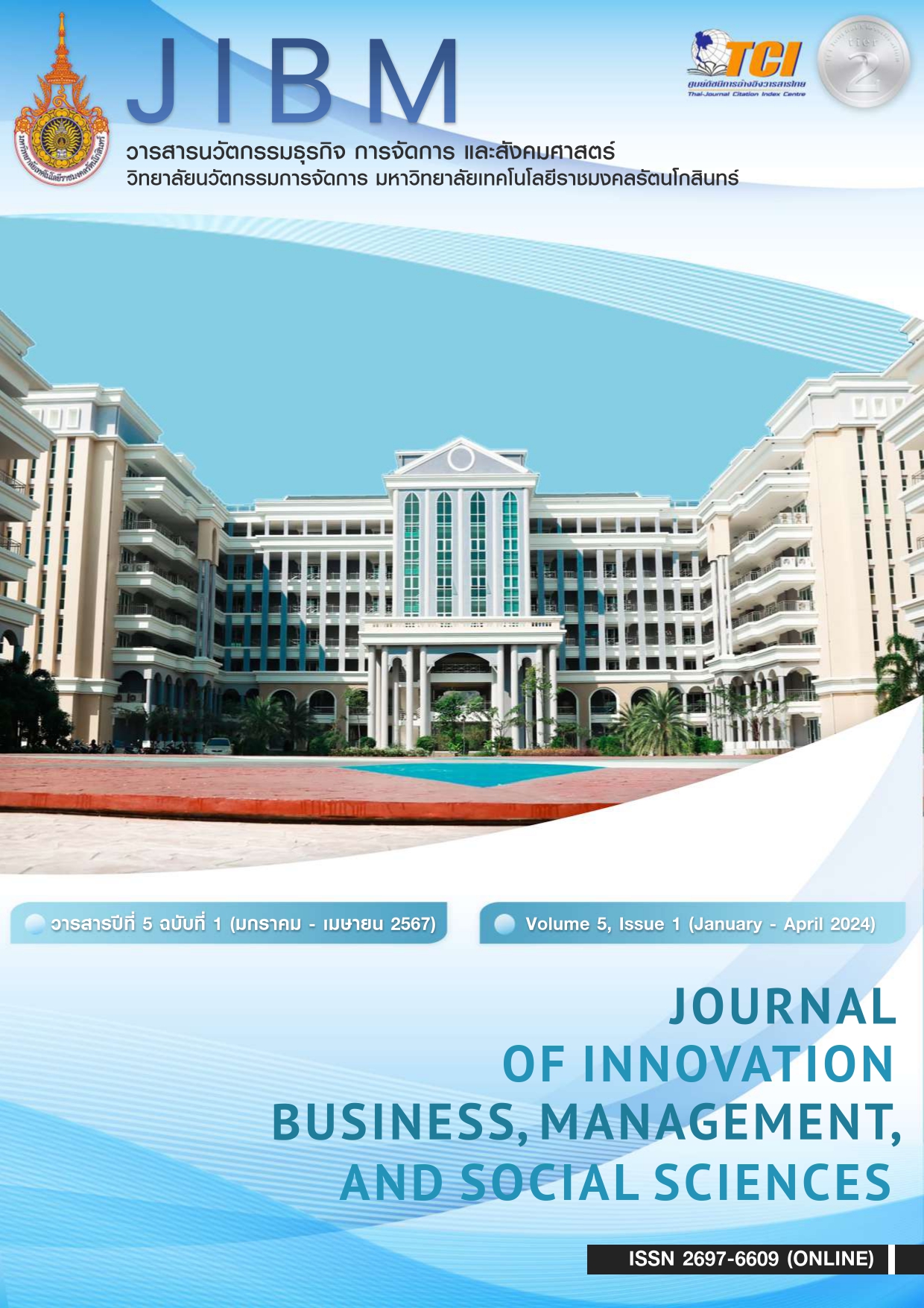Assessing Subsequent-Year Performance of Morningstar Award-Winning Large-Cap Equity Funds in Thailand
คำสำคัญ:
Large-cap fund, Morningstar awards, mutual fund performanceบทคัดย่อ
This research objective was to evaluate the performance of the Morningstar’s award-winning large-cap equity mutual funds in Thailand over a 10-year period. Annual returns were compared to the SET50 Total Return Index (SET50 TRI), a benchmark for large-cap equity funds. Findings showed that, despite receiving the awards, the funds did not outperform the benchmark in the first, second, and third years. The probabilities of outperforming were 36%, 30%, and 11% respectively. This highlights the challenges faced by these funds in sustaining exceptional performance over time. The study contributes to understanding the relationship between Morningstar Awards, subsequent fund performance, and benchmark comparisons.
เอกสารอ้างอิง
Brown, J., & Goetzmann, W. N. (1995). Performance Persistence. Journal of Finance, 50, 679–698.
Brown, S. J., Goetzmann W., Ibbotson, R. G., & Ross, S. A. (1992). Survivorship Bias in Performance Studies. Review of Financial Studies, 5(4), 553–580.
Carhart, M.M. (1997). On Persistence in Mutual Fund Performance. Journal of Finance, 52(1), 57-83.
Goetzman, W.N. & Ibbotson, R.G. (1994). Do Winners Repeat?. Pattern in Mutual Fund Performance. Journal of Portfolio Management, 20, 9-18.
Grinblatt, M. and Titman, S. (1992). The Persistence of Mutual Fund Performance. Journal of Finance, 47(5), 1977–1984.
Hendricks, D., Patel, J., & Zeckhauser, R. (1993). Hot Hands in Mutual Funds: Short-run Persistence of Performance. Journal of Finance, 48, 93-130.
Hensawang, S., (2022). Mutual Fund Performance and Its Persistence: An Empirical Study of Equity Mutual Funds in Thailand. International Journal of Economics and Finance Studies, 14(2), 217-245.
Jenwittayaroje, N. (2017). The Performance and Its Persistence of Thailand Equity Mutual Funds from 1995 to 2014. Chulalongkorn Business Review, 39(152), 57-89.
Malkiel, B. G. (1996). Returns from Investing in Equity Mutual Funds 1971 to 1991. Journal of Finance, 50(2), 549–572.
Morningstar (2023). Morningstar Announces Winners for 2023 Morningstar Fund Awards – Thailand, Retrieved from: https://newsroom.morningstar.com/newsroom/news-archive/press-release-details/2023/Morningstar-Announces-Winners-for-2023-Morningstar-Fund-Awards---Thailand/default.aspx.
Nimanussornkul, C., Nimanussornkul, K., & Chaiwan, A. (2017). Evaluation and Comparison of the Performance of Long Term Equity Fund in Thailand. Journal of Economics, 21(2), 77-97.
Petajisto, A. (2013). Active Share and Mutual Fund Performance. Financial Analysts Journal, 69(4), 73-93.
Sukcharoensin, S., and Sukcharoensin, P. (2013). Persistence of Equity Mutual Fund Performance in Thailand. NIDA Economic Review, 7(2), 101-132.
Wissawapaisal, K., and Parkatt, G. (2014). Consistency of Returns from Active Long Term Equity Funds. Modern Management Journal, 12(2), 23-36.



